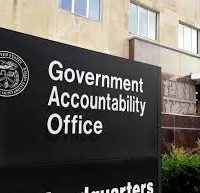
Congresswoman Uifa’atali Amata thanked and applauded the congressional Government Accountability Office (GAO) for its helpful Report released Thursday on Data Collection Gaps (DCG’s) in Federal Programs which impact federal funding for the Territories.
The GAO Report was commissioned at the joint request of the Territorial Congressional Offices with the bi-partisan support of the House Natural Resources Committee Chairman Bruce Westerman and Ranking Member Raul Grijalva.
The report demonstrates that federal statistical products often contain gaps in data for the U.S. territories of American Samoa, the Commonwealth of the Northern Mariana Islands (CNMI), Guam, the Commonwealth of Puerto Rico, and the U.S. Virgin Islands (USVI).
For example, of the 52 statistical products reported to GAO by the National Agricultural Statistical Service, only one—the Census of Agriculture—includes the territories.
Of the 21 products reported by the Bureau of Labor Statistics, none include American Samoa or CNMI, while Puerto Rico was included in the most, four, due in part to their larger population which makes sample size of data easier to obtain. GAO also found that even when territories are included in federal statistical products, there may be disparities in the timeliness and in the measurement of quality of territorial data relative to the rest of the U.S.
Several factors contribute to the data gaps—chiefly that statistical products based on sampling of smaller jurisdictions have to sample much higher proportions of the population to achieve the same level of precision as sampling of larger populations.
“GAO worked with us previously to help identify and correct the disparities in federal Medicaid funding and matching requirements, and we were able to turn that into legislation that fixed those disparities to reduce our cost share requirements and provide more coverage at a lower cost to our local government,” said Congresswoman Aumua Amata.
“I want to thank the GAO staff for working with all the territorial Congressional offices to put this new Report together, so that we can use it to educate our colleagues from the states, help craft legislative solutions, and correct disparities in the funding of federal programs for the territories,” Congresswoman Amata concluded.




